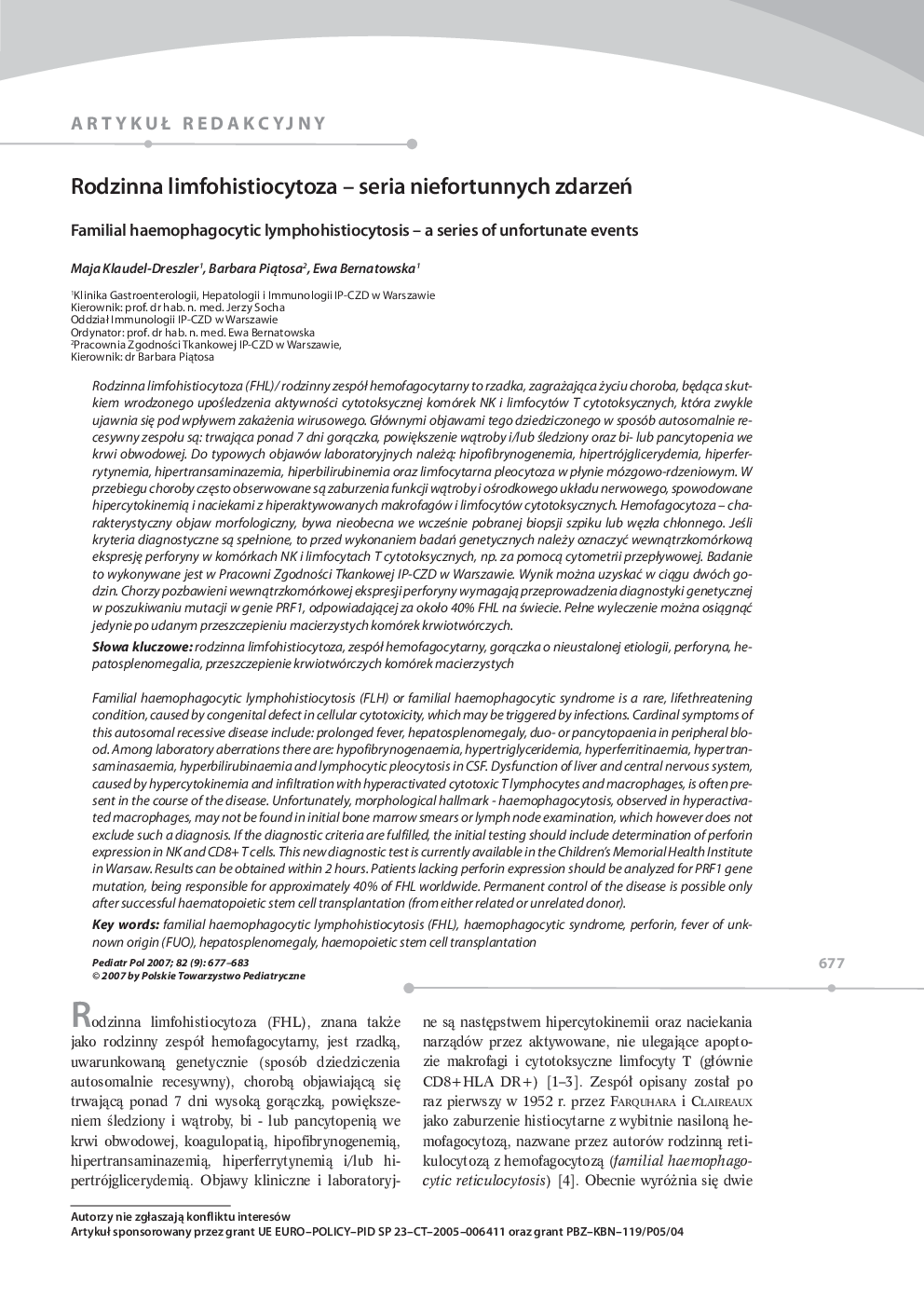| کد مقاله | کد نشریه | سال انتشار | مقاله انگلیسی | نسخه تمام متن |
|---|---|---|---|---|
| 2678441 | 1142081 | 2007 | 7 صفحه PDF | دانلود رایگان |
عنوان انگلیسی مقاله ISI
Rodzinna limfohistiocytoza - seria niefortunnych zdarzeÅ
دانلود مقاله + سفارش ترجمه
دانلود مقاله ISI انگلیسی
رایگان برای ایرانیان
کلمات کلیدی
موضوعات مرتبط
علوم پزشکی و سلامت
پزشکی و دندانپزشکی
امراض پوستی
پیش نمایش صفحه اول مقاله

چکیده انگلیسی
Familial haemophagocytic lymphohistiocytosis (FLH) or familial haemophagocytic syndrome is a rare, lifethreatening condition, caused by congenital defect in cellular cytotoxicity, which may be triggered by infections. Cardinal symptoms of this autosomal recessive disease include: prolonged fever, hepatosplenomegaly, duo- or pancytopaenia in peripheral blood. Among laboratory aberrations there are: hypofibrynogenaemia, hypertriglyceridemia, hyperferritinaemia, hypertransaminasaemia, hyperbilirubinaemia and lymphocytic pleocytosis in CSF. Dysfunction of liver and central nervous system, caused by hypercytokinemia and infiltration with hyperactivated cytotoxic T lymphocytes and macrophages, is often present in the course of the disease. Unfortunately, morphological hallmark - haemophagocytosis, observed in hyperactivated macrophages, may not be found in initial bone marrow smears or lymph node examination, which however does not exclude such a diagnosis. If the diagnostic criteria are fulfilled, the initial testing should include determination of perforin expression in NK and CD8+ T cells. This new diagnostic test is currently available in the Children's Memorial Health Institute in Warsaw. Results can be obtained within 2 hours. Patients lacking perforin expression should be analyzed for PRF1 gene mutation, being responsible for approximately 40% of FHL worldwide. Permanent control of the disease is possible only after successful haematopoietic stem cell transplantation (from either related or unrelated donor).
ناشر
Database: Elsevier - ScienceDirect (ساینس دایرکت)
Journal: Pediatria Polska - Volume 82, Issue 9, September 2007, Pages 677-683
Journal: Pediatria Polska - Volume 82, Issue 9, September 2007, Pages 677-683
نویسندگان
Maja Klaudel-Dreszler, Barbara PiÄ
tosa, Ewa Bernatowska,